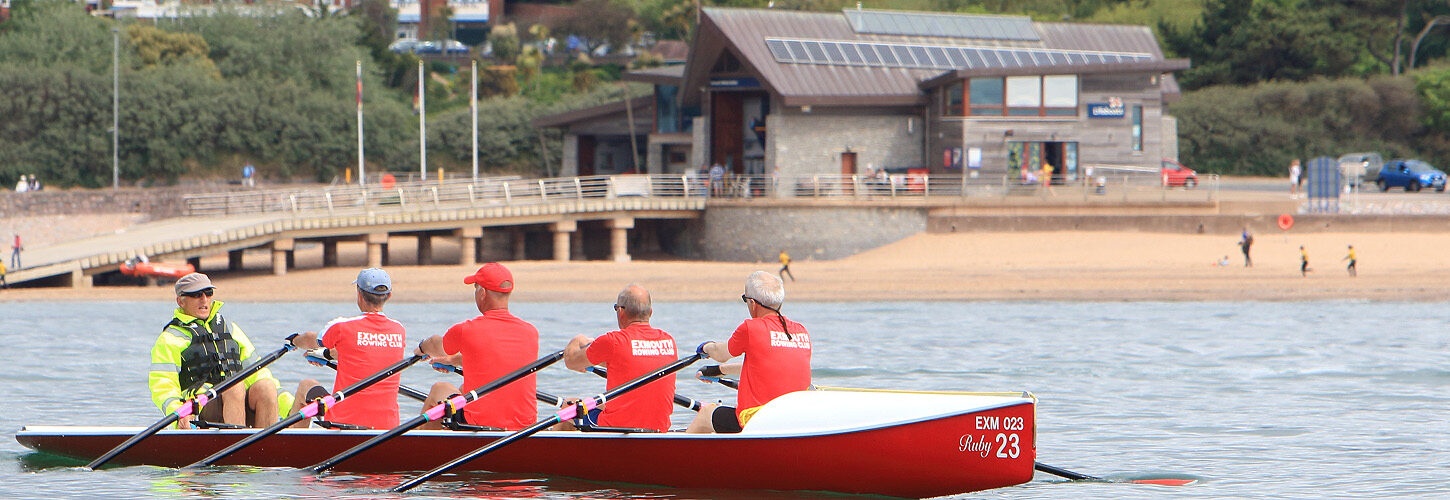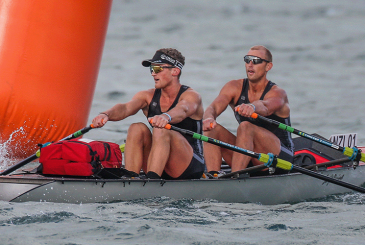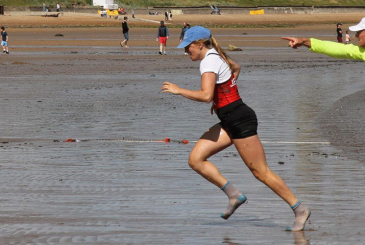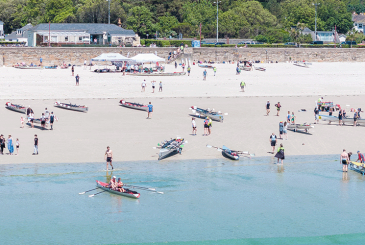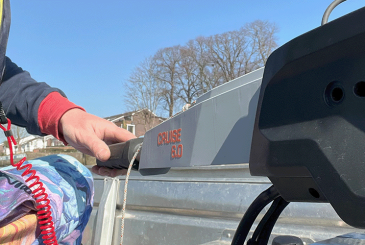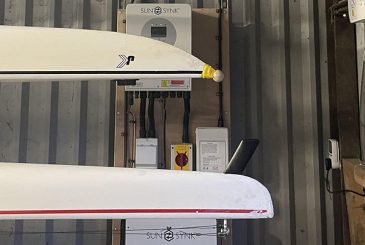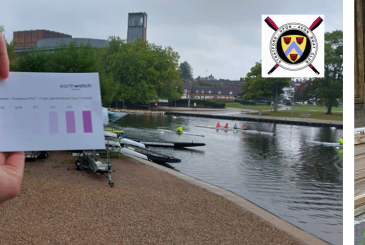Novelist Graham Hurley relates how a rowing outing inspired a murder most foul
Coastal rowing can open doors you’d never believe. It’s 2005 and Lin and I, newly arrived in Exmouth, were looking for stuff to do. We’d both lived by – and in – the sea for most of our lives and when our daughter-in-law suggested offshore rowing, it seemed a natural fit. Exmouth is blessed with some of the finest water in the kingdom, so we joined Kate at Exmouth RC.
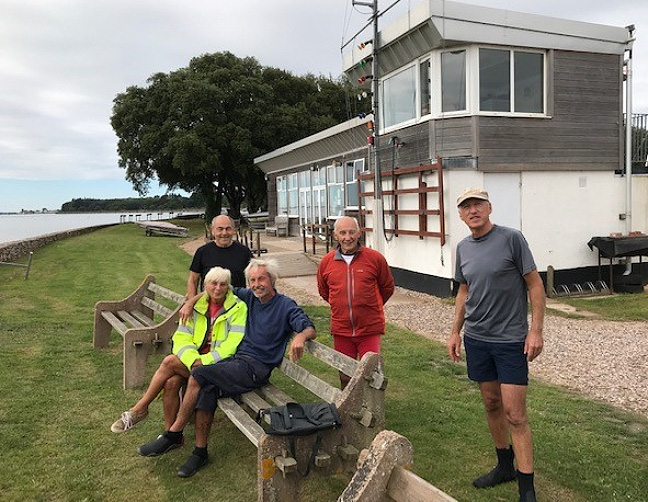
I write novels for a living. My last series of crime fiction had explored exotic corners of the Portsmouth underworld, and my parting gift to my publisher had been a pitch for a spin-off quartet of books featuring one of the younger characters from the Pompey CID office, D/S Jimmy Suttle, who has joined the Devon and Cornwall force, and settled in – yep – Exmouth. Orion are in the business of commissioning hard-boiled, cutting-edge crime fiction – and were under-impressed by the page-turning potential of East Devon. What had worked so well in the badlands of Pompey, they murmured, was unlikely to survive the journey west.
I thought no more of it. Our new lives afloat were challenge enough, and we’d both settled in a regular crew by the time a phone call arrived from Orion. Thanks to a late delivery, next Spring’s list was suddenly in trouble, and they’d had second thoughts about D/S Jimmy Suttle. Might I be in a position to deliver the first of the new series in time for Christmas? It was already September. Naturally, I said yes.
We’d only been in Exmouth for six months and apart from the rowing club I knew very little about the town, but time was almost impossibly short and, somehow, I had to coax a plot and a bunch of characters from our new life afloat. Our next row was scheduled for the following morning, and already the forecast was looking dodgy. We launched from a beach about 900 metres from the shelter of the river estuary and we knew at once we had a battle on our hands.
“As soon as I saw him, I knew he was waiting for us to die”
When a crew goes quiet, bad things are in the offing. Concentrating extra-hard, we made for the new marina complex at the mouth of the river. The water here can be especially tricky, and our cox advised us not to look too hard at what awaited us. A brand-new apartment block had recently been completed. The complex has fabulous views and the trophy penthouse on the fifth floor had recently sold for nearly a million pounds.
We were bang in the middle of the worst of the tidal churn when I happened to look up at the penthouse, and there in the window was the silhouette of a man watching us through a pair of binoculars. As soon as I saw him, I knew he was waiting for us to die. No one with that kind of money, I told myself, has any conscience.
“The English country house murder, afloat. Perfect”
By the time we made a landfall upriver for coffee and stickies, I had the entire plot. The man with the binoculars is called Kinsey. He’s bought himself a brand-new quad and a race-ready crew. They all hate him and by the end of the opening chapter, he’s lying dead on the promenade beneath his swanky apartment. The plot, in homage to Agatha Christie, is simple. One of the five guys in the boat – Kinsey – is dead. One of the other four killed him. The English country house murder, afloat. Perfect.
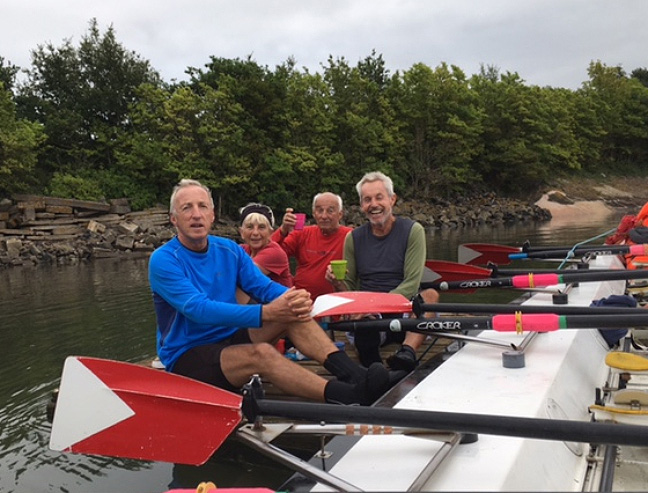
I wrote the book in less than a month and it felt good, but what I didn’t have was the all-important opening sequence. Then came another stroke of luck. It was Sunday, club day. Our quads were on the beach and a fit-looking young man asked me whether it might be possible for him to have a go. I said yes, by all means, but rather pompously I enquired whether he had any previous experience. A little, he said.
A little? No problem. I’d take him up to the clubhouse, sit him on a rowing machine, show him the basics and then settle him in a quad with an experienced crew for a trip round the bay. Only when he was on the rowing machine, and I was enquiring further about his days on the water, did he admit that – last year – he’d rowed the Atlantic.
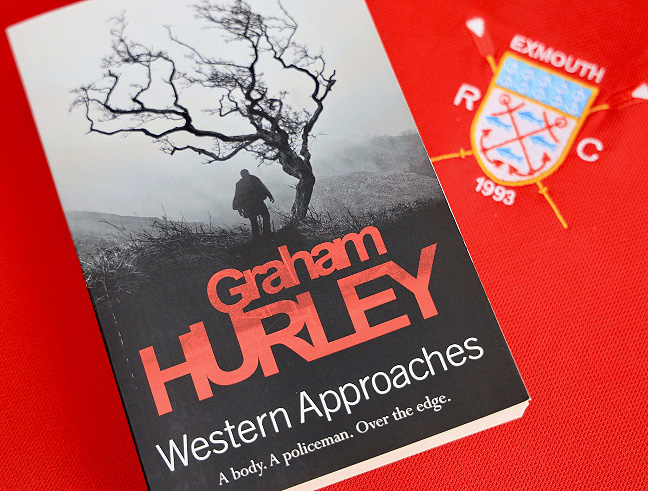
In the end, my new friend never joined the club, but we had several sessions in the pub where he shared the small print of his trans-Atlantic crossing. I invented the grim events that scorch the opening pages of Western Approaches,but many readers have commented on how authentic that key sequence feels. Detail is everything in writing, and I suspect the series owes a great deal to that one chance encounter.
Does rowing open every door? Bet your life…
Read more about Graham’s coastal rowing adventures here.
Photos: Graham and Tom Hurley


